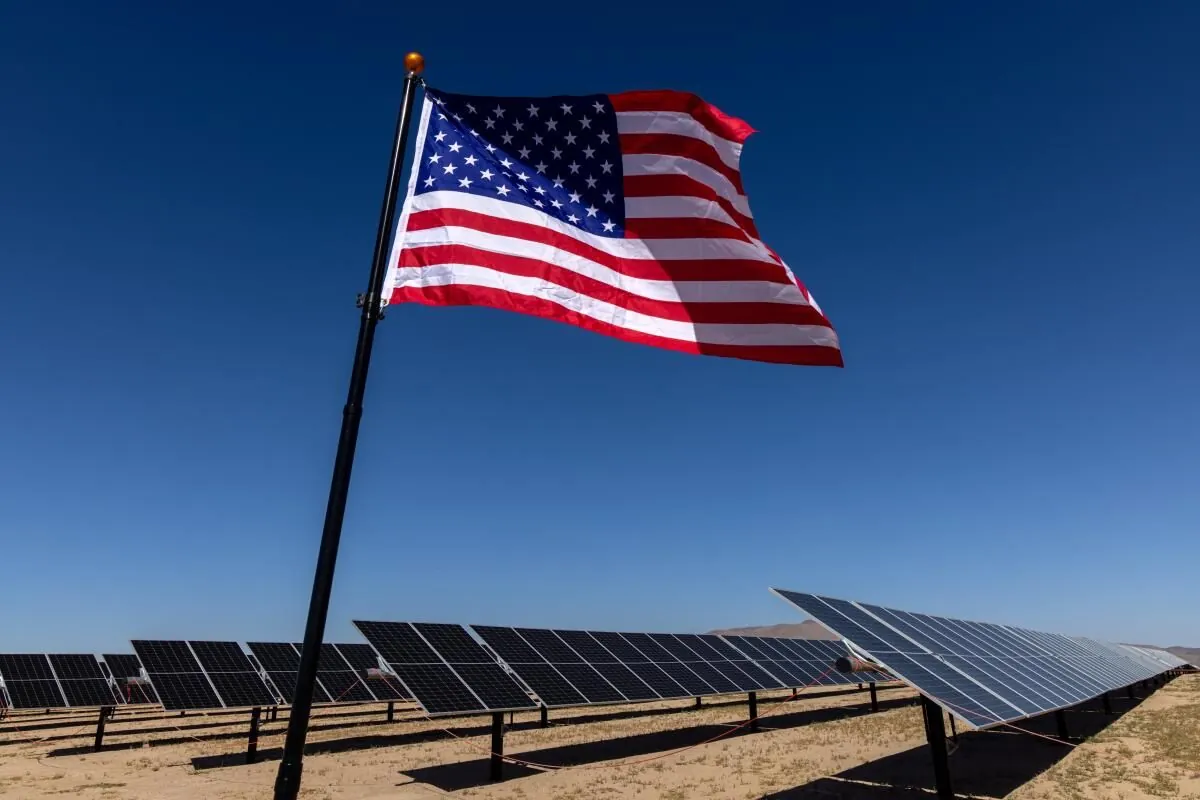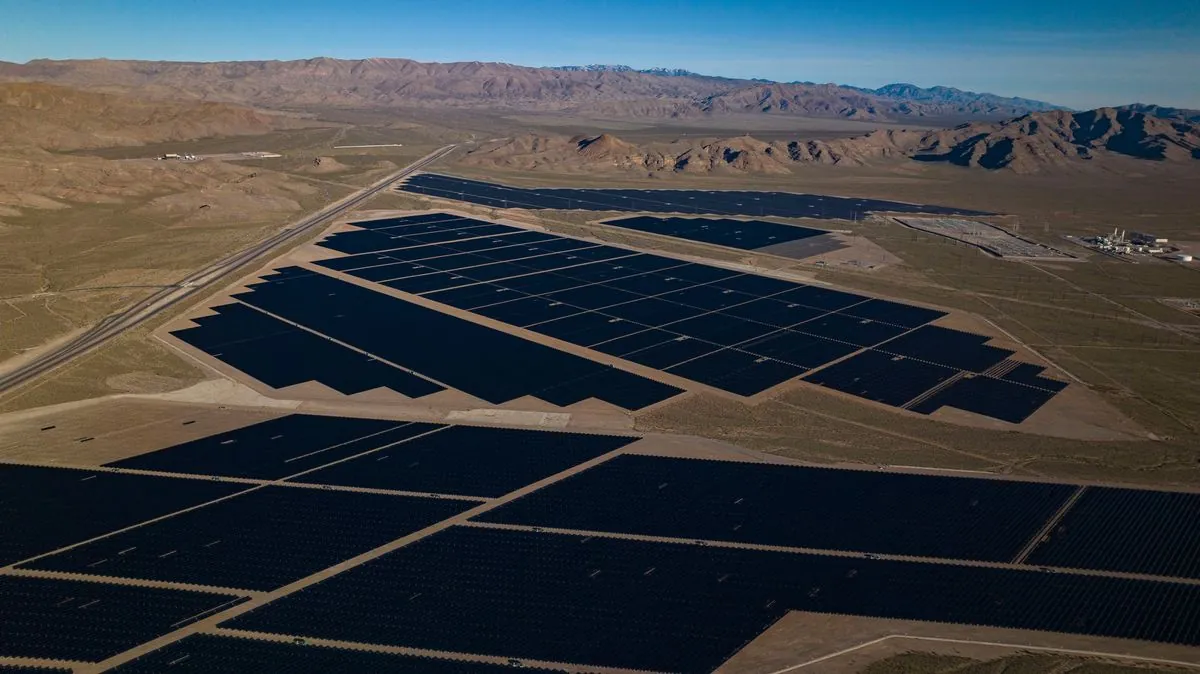Biden Administration Unveils Massive Solar Expansion Plan on Federal Lands
The U.S. government finalizes a plan to boost solar energy across 11 western states, aiming to expedite infrastructure projects. The initiative includes emissions reduction credits in Arizona to support semiconductor manufacturing.

The Biden administration has unveiled a comprehensive plan to expand solar energy development on federal lands across 11 western states. This initiative, announced on August 29, 2024, is part of a broader strategy to accelerate the approval and construction of major infrastructure projects in the United States.
The U.S. Bureau of Land Management (BLM), which oversees approximately 245 million acres of public lands, has identified 31 million acres (12.5 million hectares) as prime locations for solar development. These areas, spread across Arizona, California, Colorado, Nevada, New Mexico, Utah, Idaho, Montana, Oregon, Washington, and Wyoming, have been selected for their high solar potential and minimal conflicts with wildlife and plant habitats.

This solar expansion plan aligns with the administration's goal to decarbonize the power sector and combat climate change. Currently, solar energy accounts for about 3% of U.S. electricity generation, but initiatives like the Department of Energy's SunShot aim to make it cost-competitive with conventional energy sources.
In a parallel development, the Environmental Protection Agency (EPA) has conditionally approved a rule creating emissions reduction credits for companies in Maricopa County, Arizona. This measure is designed to support the transition of vehicle fleets to cleaner alternatives while facilitating the establishment of semiconductor factories in the region.
Maricopa County, the fourth most populous county in the U.S., has been grappling with elevated ozone emissions. The new credits system will help semiconductor manufacturers like Intel and Taiwan Semiconductor Manufacturing Company (TSMC) offset their air emissions and comply with federal air quality standards. This initiative is particularly significant given the recent $52.7 billion investment in American semiconductor research and development through the CHIPS and Science Act.
Natalie Quillian, White House Deputy Chief of Staff, emphasized the administration's commitment to improving the federal permitting process:
"We've been really pushing ourselves to use our executive authority wherever possible to improve the federal permitting process."
The administration claims to have reduced the median time required for environmental reviews by six months, surpassing the number of projects permitted during the previous administration. This progress is crucial as the country approaches the November 2024 presidential election, with the current administration eager to showcase its "Investing in America" agenda.
As the U.S. continues to expand its renewable energy capacity, which exceeded 100 gigawatts of solar as of 2023, these initiatives represent significant steps towards a more sustainable and technologically advanced future. The integration of environmental policies with industrial development, particularly in the semiconductor sector, demonstrates a holistic approach to economic growth and environmental stewardship.


































